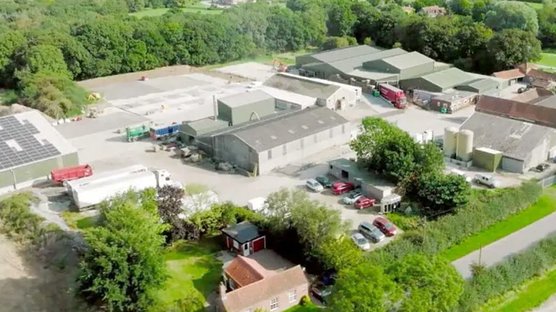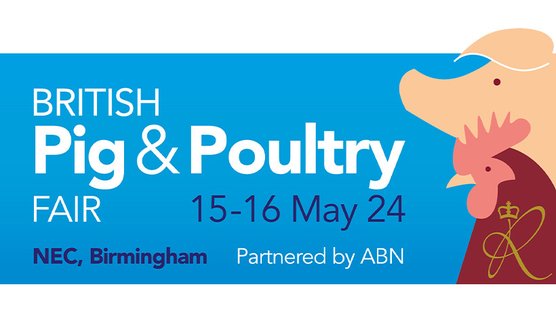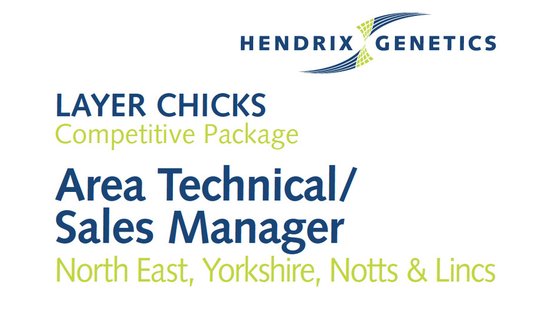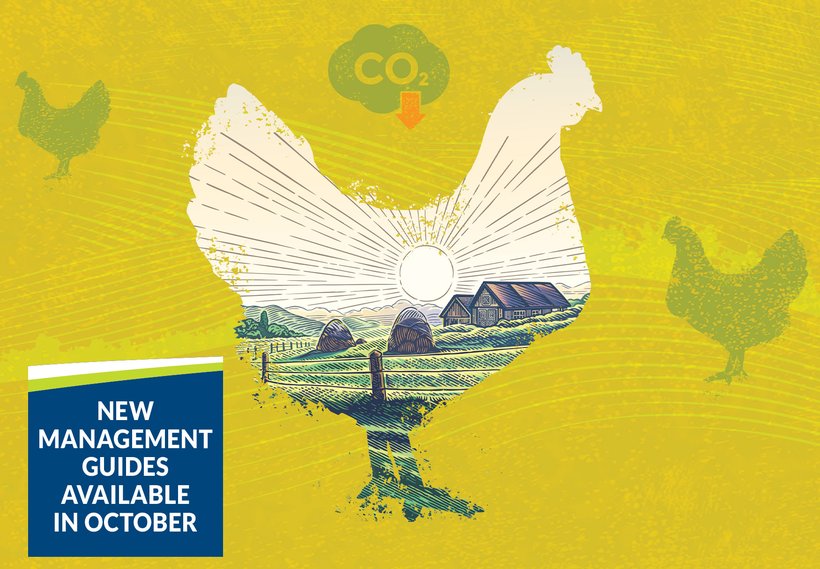
Published on Oct. 1, 2021
The Next Generation of Layers Are Here!
New standards promise longer cycles, improved performance and more sustainable egg production.
Our supportive national technical sales team are on hand to ensure our birds reach their genetic potential. New management guides will be available in October.
The most productive and efficient of all laying birds
Since the last standards were published, the norm has gone from 72 week cycles to 76 weeks, with Hendrix Genetics layer breeds depleting regularly at 80 weeks for brown birds. Commercial flocks of Dekalb Whites are now repeatedly laying 500 eggs per hen housed over a 100 week cycle – making it the most productive and efficient of all laying birds available.
Longer cycles are a direct result of our work on liveability and persistency. Combined with the improvements in egg quality later in the cycle, the result is record numbers of saleable eggs across the cycle for producers.

Longer cycles, more first quality eggs per bird and improved feed conversion will assist our customers in both their production cost and sustainability.


The new standards by breed
Bovans Brown - This robust and easy to manage layer continues to show improvements in end of lay egg quality and colour.
ISA Brown - Gains in egg quality and feed conversion.
Shaver Brown - The all-rounder continues to improve across all traits.
Warren Brown - This tough and well feathered free-range specialist sees further improvement in egg numbers and shell quality.
Dekalb White - Egg size increases, with further gains in laying persistency, liveability and end of lay shell quality, make long cycles of up to 100 weeks viable even in floor system and free-range flocks.

A close up on Bovans
The Bovans Brown is the best selling Hendrix Genetics breed in the UK. The graph and chart below demonstrate the improvements in the last five years to 80 weeks of age.
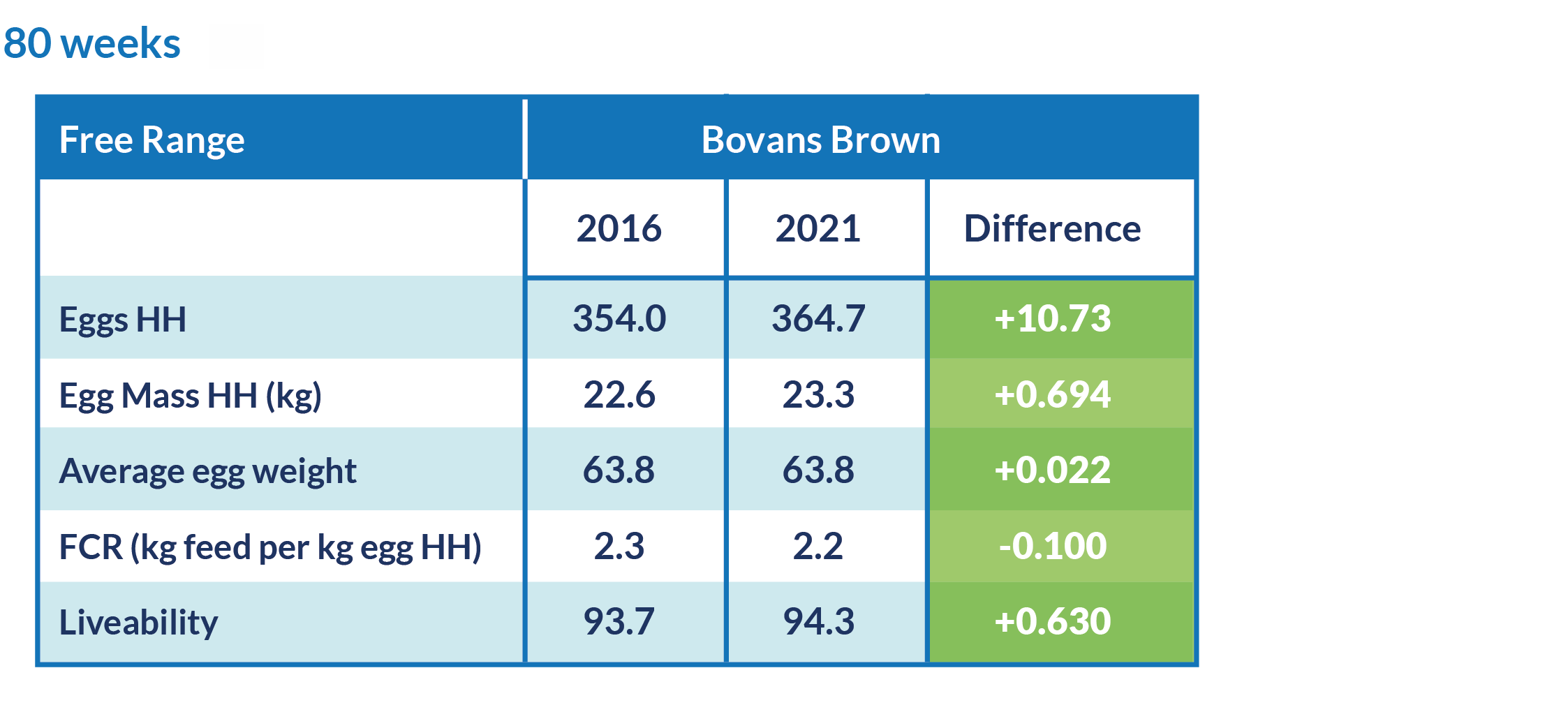
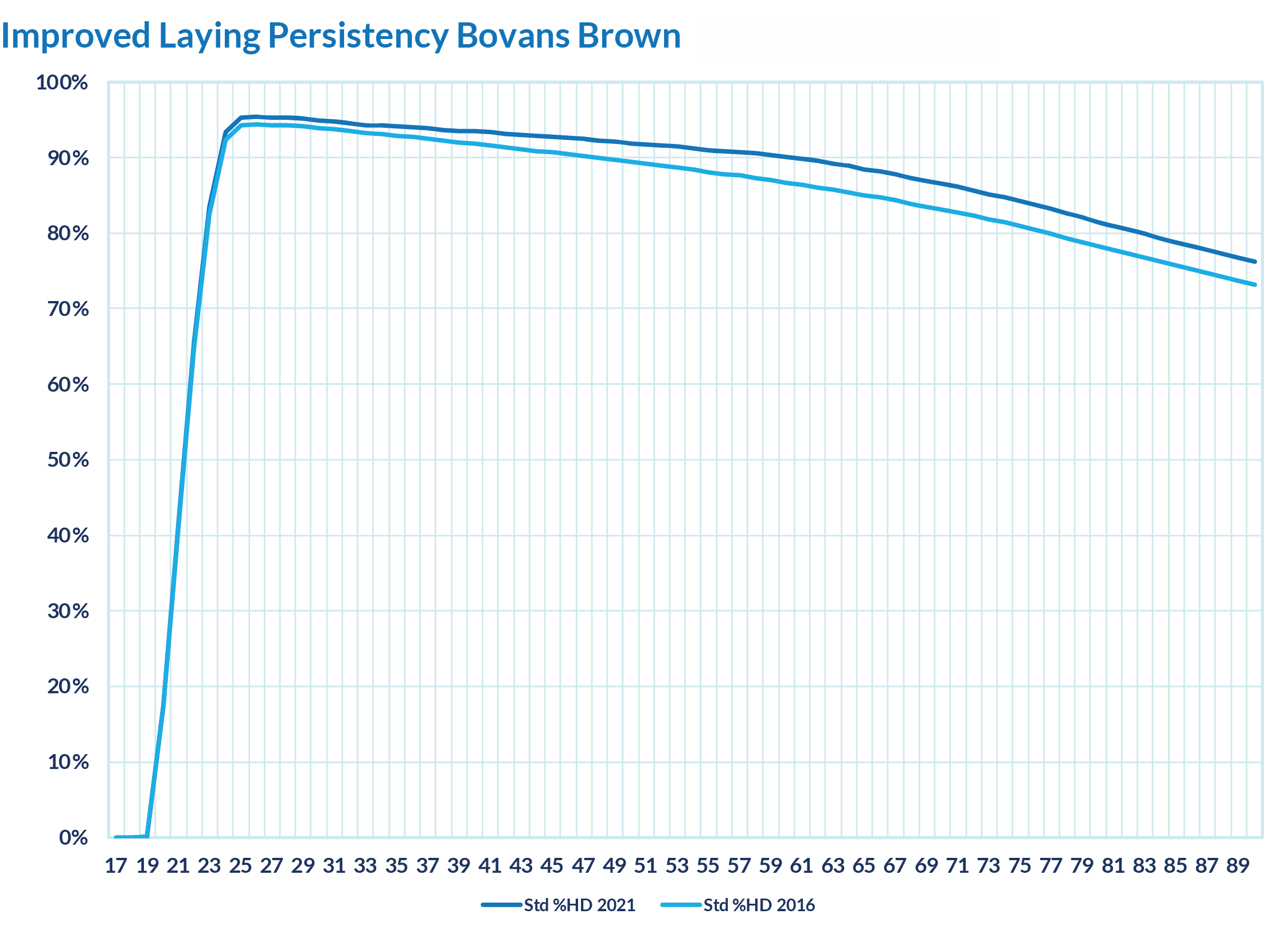
- Nearly eleven more eggs and 700g of egg mass per hen housed for the same feed to 80 weeks
- Improved egg quality means the number of grade “A” eggs per hen will potentially exceed eleven
- One hundred grams less feed to produce 1kg of eggs
- Improved liveability
Egg weight remains more or less unchanged with good early egg weight gain but not at the cost of too big an egg at the end. There is a similar picture across all our breeds, as Hendrix Genetics Layers deliver on their promise of longer cycles and more sustainable egg production.
Gains in sustainability welfare
The launch of these new standards coincides with a desire amongst consumers for increases in sustainability and improvements in welfare standards.
The landmark IPCC report also underlines our global climate change challenges and prompted the NFU to set a target of a net zero carbon footprint in agriculture by 2040, as part of the industry’s contribution to the UK-wide target of net zero by 2050.
Longer cycles are enabled through increases in laying persistency and shell quality. The sustainability benefits of these longer cycles combined with improved Feed Conversion Rates (FCR) means better lives for the hens and lower carbon footprint for the eggs produced.
- Brown breeds show around 500-600g more egg mass for the same feed usage by 80 weeks
- Longer lives mean less energy
- Stronger shells mean less waste
As well as better liveability, the use of antibody testing and field testing of the lines means generation by generation improvement in resilience and recovery from challenge.

